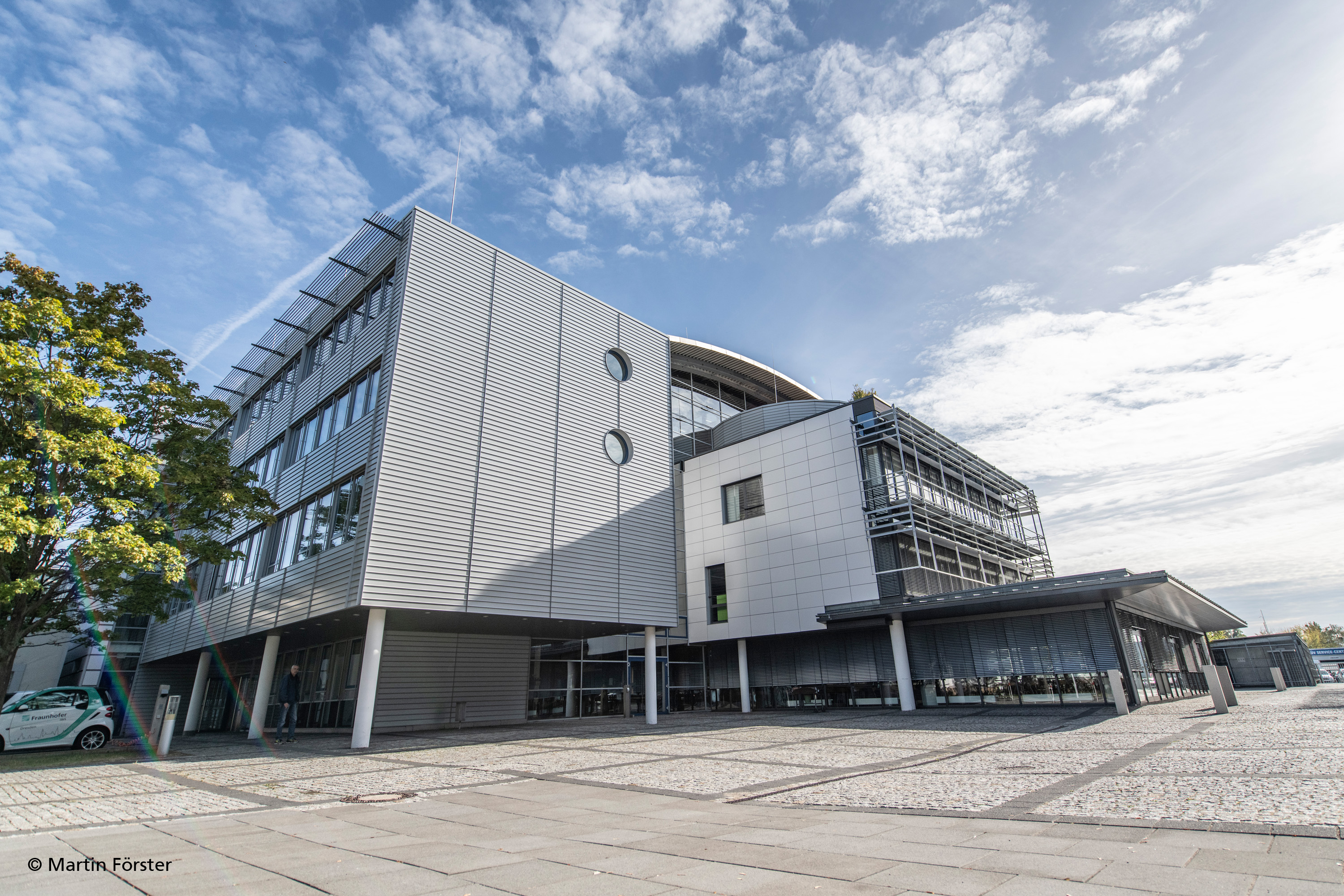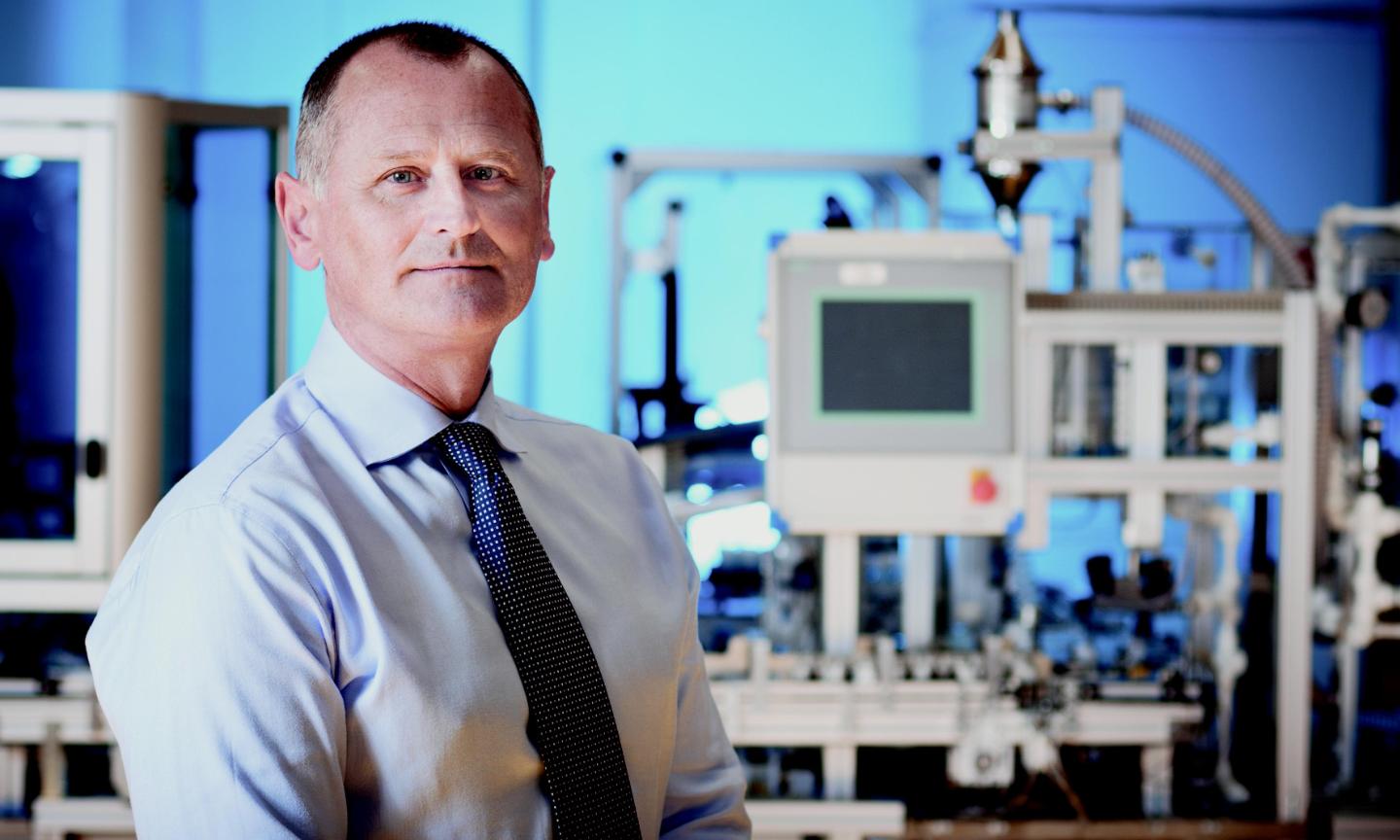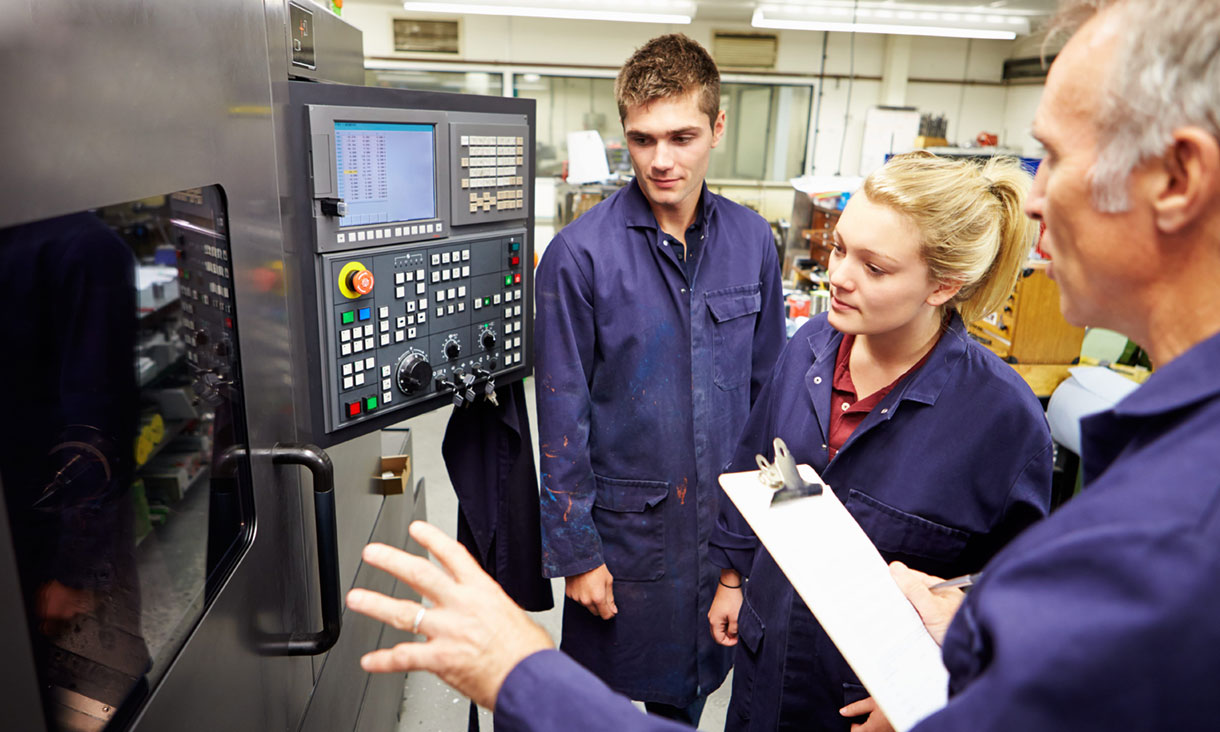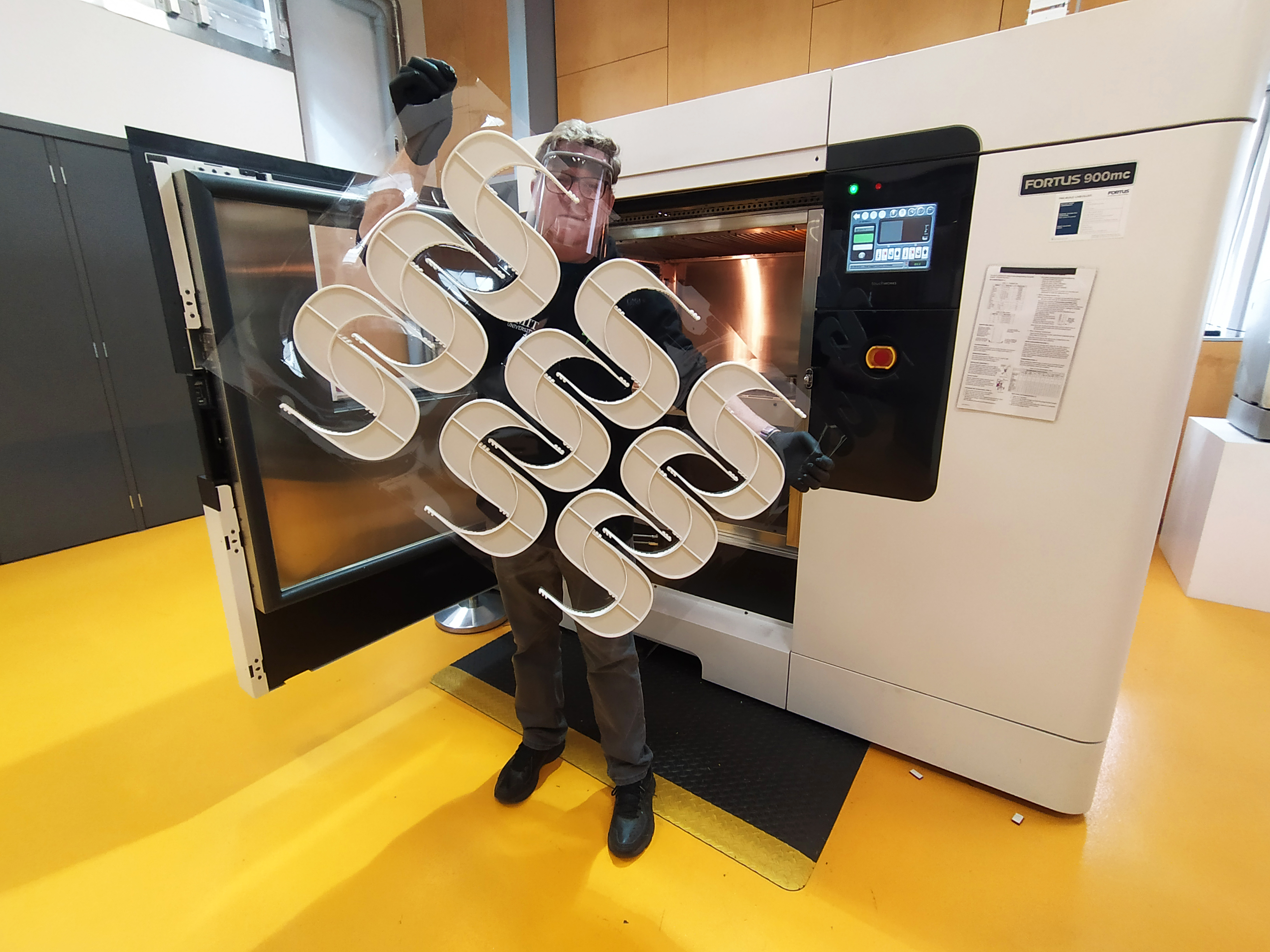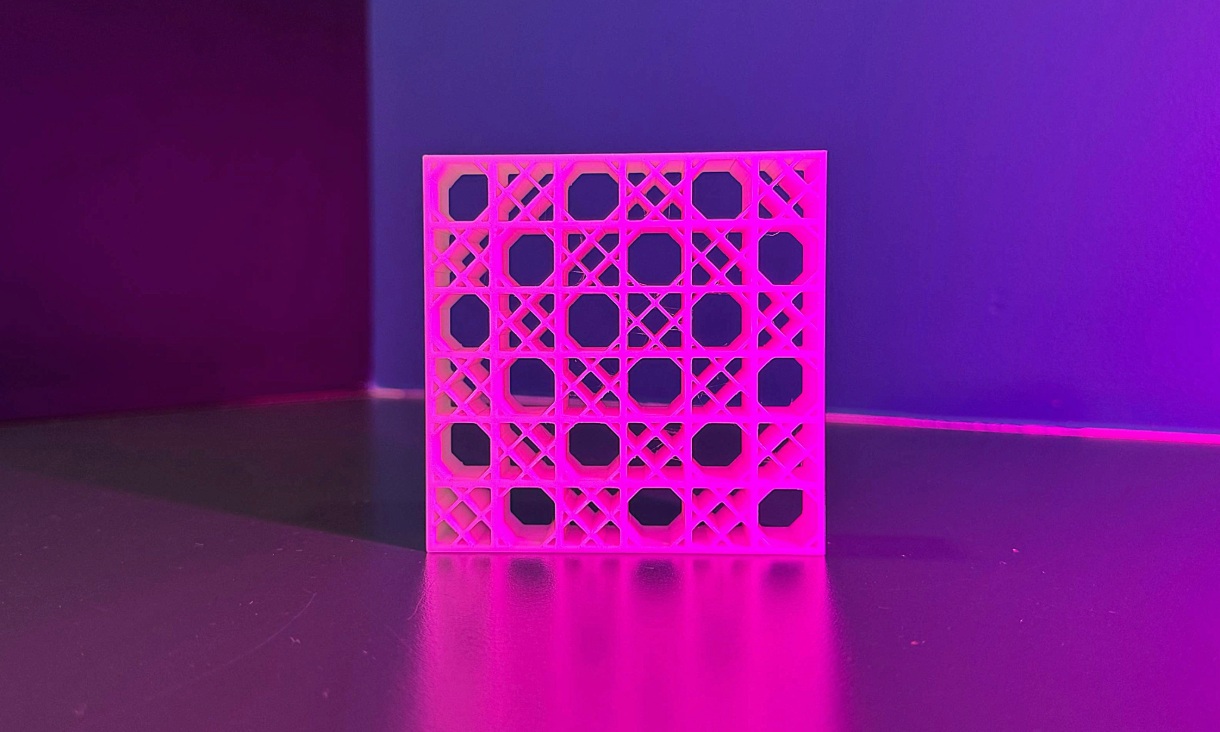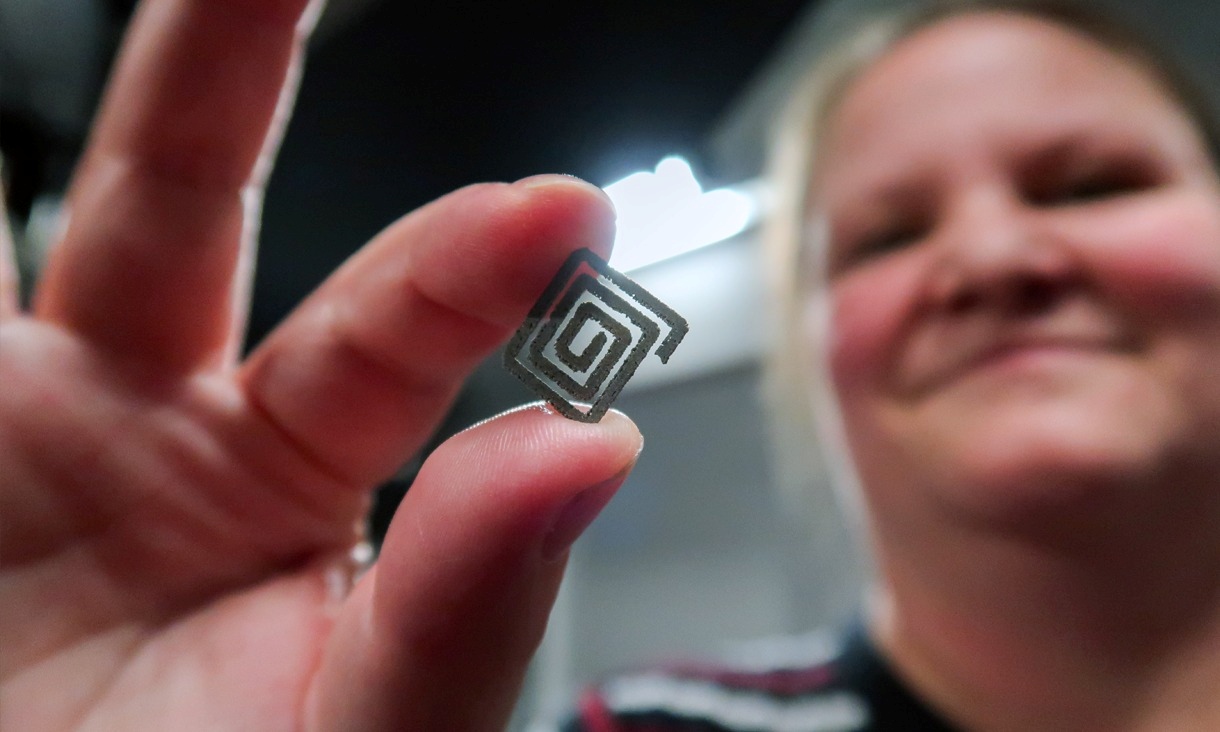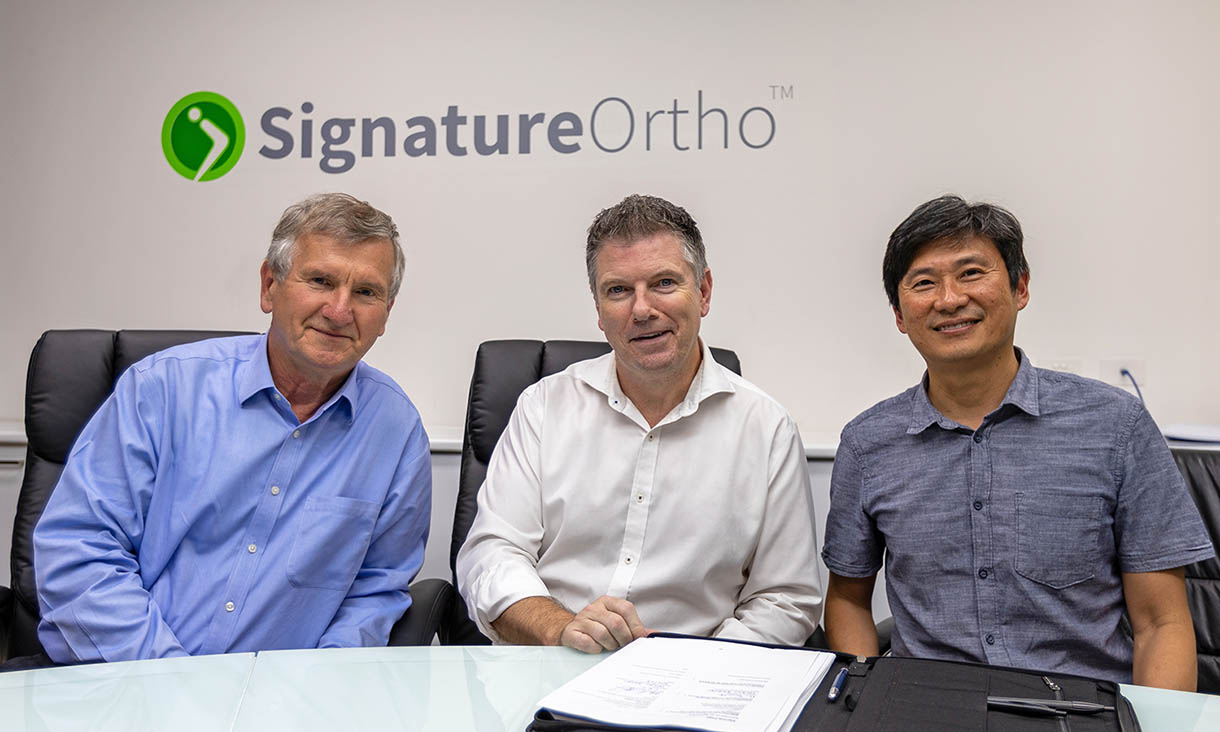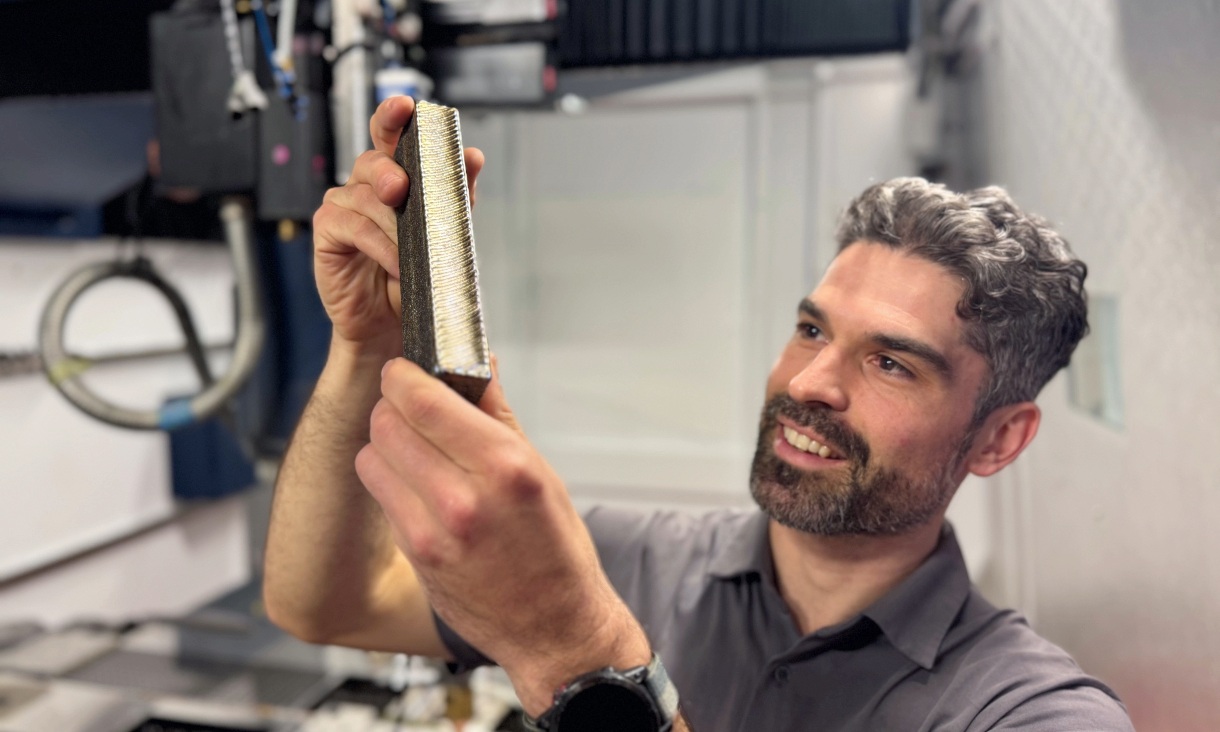Sea sponge inspires super strong compressible material
Inspired by the humble deep-sea sponge, RMIT University engineers have developed a new material with remarkable compressive strength and stiffness that could improve architectural and product designs.
Diamond power could be a medical implant’s best friend
RMIT researchers have created an experimental 3D-printed diamond–titanium device that generates electricity from flowing liquid and receives wireless power through tissue making it possible to remotely sense changes in flow.
New industry-research partnership accelerates Medtech innovation in Melbourne
Australian medical device company Signature Orthopaedics is partnering with leading Medtech researchers at the University of Melbourne and RMIT University.
Stronger, cheaper titanium a 'leap forward' for industry
Engineers from RMIT University have produced a new type of 3D-printed titanium that’s about a third cheaper than commonly used titanium alloys.
